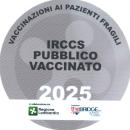Thoracic Oncology
The mission of the Thoracic Surgery Unit is to provide high-standard clinical care and scientific research by continous improvement of processes and bed-side application of evidence-based medicine. Furthermore, traslational research allows patients to benefit from advanced multimodality strategies as soon as positive results are obtained from preclinical trials.
Clinical activities cover all aspects of thoracic oncology, focusing on pulmonary, mediastinal, chest wall, and esophageal tumors. In the management of lung cancer, the mainstay of surgical treatment is maximal functional sparing. The majority of patients undergo mini-invasive (VATS) procedures. On the other hand, those patients requiring more invasive resections undergo a muscle-sparing thoracotomy, avoiding any muscular section. Lung-sparing procedures (bronchoplasty and/or angioplasty) are adopted to avoid the removal of the entire lung, whenever possible. In the setting of secondary lung tumors, the Thoracic Surgery Unit cooperates with different INT Units (mainly with Oncology, Pediatric Oncology and Sarcoma Units), performing standard metastasectomy by innovative parenchyma-sparing procedures. Extended resections are proposed when an acceptable postoperative impairment of the quality of life can be expected. Innovative techniques for tridimensional chest wall reconstruction have been developed (rib-like technique), permitting appropriate reconstruction even in case of removal of an entire hemithorax. In mediastinal surgery, superior vena cava (SVC) replacement is performed by procedures not requiring SVC cross-clamping, avoiding intraoperative hemodynamic instability. Pleurectomy/decortication is proposed in case of limited malignant mesothelioma, after induction chemotherapy. Esophageal surgery is performed in cooperation with different Units (Otorhinolaryngology, Gastrointestinal- Pancreatic Liver Surgery, Endoscopy).
Clinical trials:
Rib-like reconstruction & stem cells: ongoing prospective trial to evaluate the feasibility of chest wall reconstruction with “rib-like” prosthesis associated with the application of stem cells (derived from fat tissue) in the setting of chest wall tumors.
Passtrial: a multicentric randomized clinical trial is ongoing to evaluate the results of pleurectomy/decortication after chemotherapy versus chemotherapy in malignant pleural mesothelioma. Fourteen Italian Institutes participate to this study
Biomild trial: in March 2013 we launched a large scale prospective study to test the efficacy of a combined LDCT-MSC approach as first-line screening tests in a large cohort of 4000 smokers, 50 yrs or older. In the study design, the combination of the results of these two tests determine the subsequent diagnostic route. We have registered 9.236 subjects, and successfully completed the accrual by January 2016 enrolling 4119 subjects. Follow-up is ongoing.
Statistical analyses of the results of this trial will be concluded within 2018, with a minimum follow up time of 3 years for all subjects and will include evaluation of sensitivity/specificity/Negative Predictive Value (NPV)/ Positive Predictive Value (PPV)/ false positive rate of MSC alone, LDCT alone and their combination as well as association with all clinico-pathological parameters (tumor type, stage, mortality rate).
Ultimo aggiornamento: 26/03/2025









